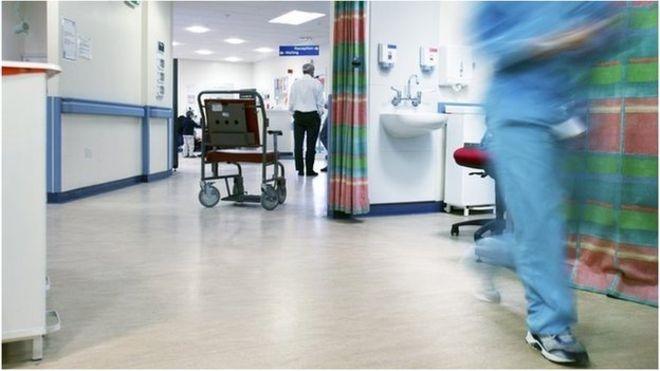'Exceptional' NHS Wales winter pressure days
- Published

The NHS in Wales has already faced "exceptional" challenges this winter, the head of the organisation has said.
It includes some of the busiest days ever faced by hospital emergency units and the Welsh Ambulance Service.
It comes as December's A&E waiting times were published, external, which are the first indication of how Wales is coping with winter pressures.
Dr Andrew Goodall said currently up to 20% of admissions in some A&Es are of patients aged over 85.
"We're used to having a high proportion of over 85s - the normal level is around 10% but we're seeing levels close to 20% over the last two weeks," said Dr Goodall, NHS Wales chief executive.
The latest statistics suggest there has been a significant increase in the number of patients who have had to wait more than 12 hours in emergency departments this December compared to the same time last year.
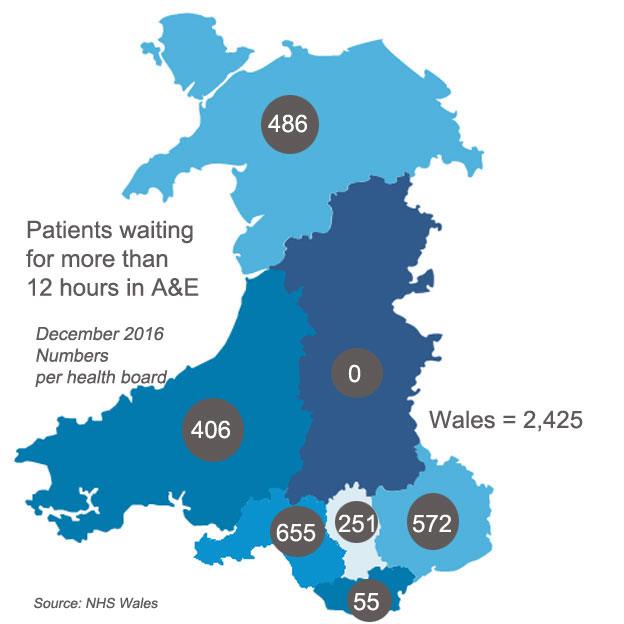
In December, 2,425 patients had to spend over 12 hours in urgent care departments - compared to 1,457 in the same month in 2015 - a rise of two thirds. It is down from 2,471 in November however.
But the 81% figure suggests the performance of Welsh A&Es departments against the four hour waiting time target is slightly worse compared to the previous December's 82%.
Here's a guide to the A&E figures - in 30 seconds
The data excludes Glan Clwyd Hospital, which could not provide figures for technical reasons.
The winter picture so far includes:
27 December - the end of the long Christmas weekend was the busiest post-Christmas day for admissions over the last five years for A&E
Some hospitals are reporting a 10% rise in admissions over last year
1 January was the busiest day on record for the ambulance service
Dr Goodall added: "We remain a system under a lot of pressure but we've prepared very well for this winter.
"There have been some difficult days. But the fact we've come in to this winter with an ambulance service which is performing much more resiliently has really helped us in our response and that we've kept our social care delays low is a positive issue but there is still more to go at."
'Stay away' with coughs and colds
NHS Wales gets £50m more for winter pressures
Dr David Bailey, deputy chairman of the BMA in Wales and a GP in Trethomas, Caerphilly county, said there had been a "more mature" response from the government in Wales.
But in terms of pressures they were "pretty much identical" in every aspect of the health service and there was no slack in the system.
"We've lost about 40% of the bed numbers in Wales over the last 15 years - like in England - so when there's a surge you haven't the capacity to cope," he said.
"The problems then knock on and even when you get back to more normal levels you have all the backlogs - you can't get people out of hospital because of social care cuts and difficulties in getting people back into their own environment.
"There are then all the concerns about extra overcrowding so you get more hospital-acquired infections - it becomes perfect a storm because of the additional numbers we're not set up to deal with."
Leaked data for NHS England seen by BBC News showed the figure reached a low of 75.8% on 3 January but had recovered to 82.4% last week. It followed claims of a "humanitarian crisis" in the NHS in England and that GPs in England were being made "scapegoats" for pressures on A&E departments.
NHS Wales chief says pressures have been 'exceptional' this winter
Welsh Health Secretary Vaughan Gething has said winter pressures are driven by a large increase in much sicker patients.
He tweeted last week that "GPs are not to blame for that fact" and the UK government "picking a fight with NHS staff and demanding the same staff numbers work even longer is a crass attempt to deflect attention".
Dr Bailey said there were consequences of funding cuts and recruitment problems being felt across the NHS and efficiencies could only take us so far.
"If there isn't enough capacity, that doesn't help," he added.
He said there was a "slightly better balance in Wales" to protect social care budgets but it relied on Westminster funding which had been "cut across the board".

Analysis by Mark Dayan, policy and public affairs analyst, Nuffield Trust
Nuffield Trust public affairs analyst Mark Dayan explains why the NHS Wales is continuing to struggle with A&E waiting times
"These figures aren't a surprise and are similar to this stage last winter. For some years Wales has been particularly struggling with four hour A&E waits, compared with England and Scotland although there are some signs England is catching up.
"These are issues rooted in the flow through hospitals, the ability to discharge patients to some extent and the ability to move through patients in a timely fashion. Ultimately, there is just the pressure of a growing number of patients on a limited number of beds.
"All parts of the UK tend to show trickier A&E performance in winter - largely due to more elderly patients with respiratory conditions who really need a hospital bed. The underlying factor is pressure to move patients into beds and then the difficulty moving them out to free beds up."
"Finances are very tight, particularly since the recession - Wales bears the brunt of that - but another factor is patients in Wales spend longer in hospital than England and Scotland and that's something we need to look into more. There are also the problems of shortages in key workforce groups, like GPs."

Dr Goodall said 400 extra beds had been made available this winter - the equivalent of a district general hospital - in temporary facilities in decommissioned wards and care homes.
He also said delays in transferring elderly patients from hospital back to care at home had "continued to reduce and improve" and were running much lower than historic levels.
Plaid Cymru's health spokesman Rhun Ap Iorwerth AM said crisis levels of performance were becoming the norm throughout the year.
"Doctors in A&E departments rightly focus on those who are more seriously ill, but we should not have a situation where almost 3,000 people a month have to wait longer than 12 hours in A&E to be seen," he said.
Conservative health spokeswoman Angela Burns AM said worsening A&E statistics had become routine for the Welsh Government.
"Their constant inability to meet their own targets is not only frustrating but incredibly dangerous for patients; the longer patients have to wait for treatment the greater the risk to their health," she said.
The Welsh Government said winter was always a very challenging period for our health and social services.
A spokesman added: "It is testament to the commitment and skill of doctors, nurses, social workers, paramedics and other key staff that despite these difficult circumstances, the vast majority of patients continue to receive the best possible care in a professional and timely manner."
- Published18 January 2017

- Published18 January 2017
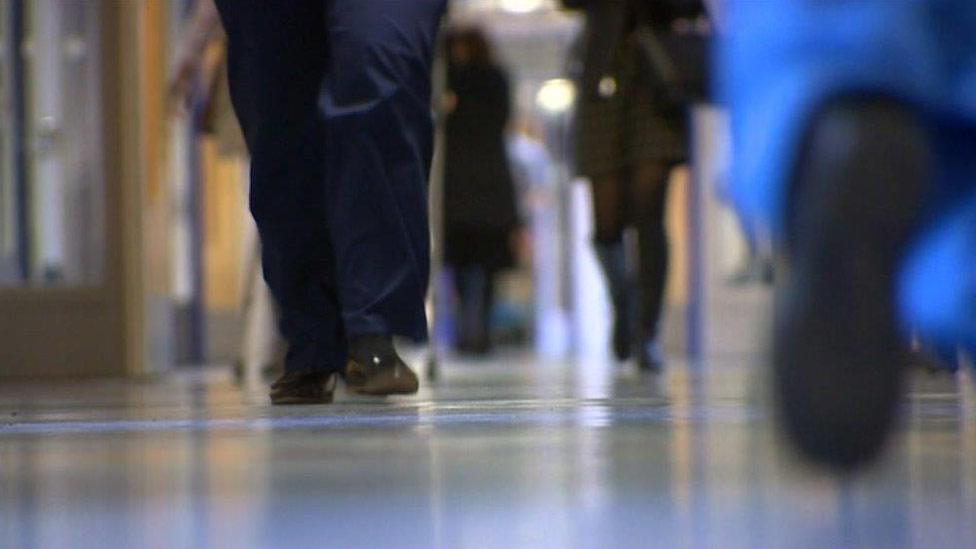
- Published16 January 2017
- Published13 January 2017
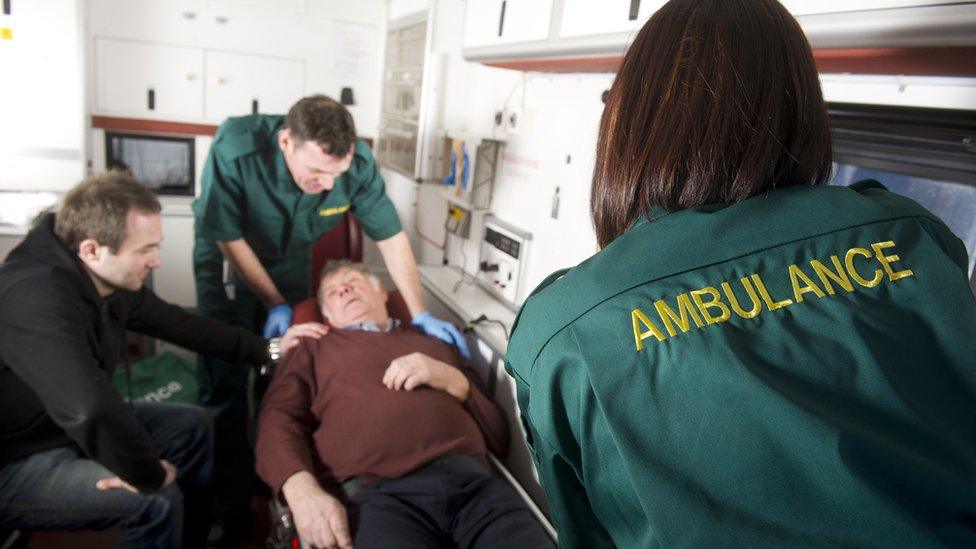
- Published6 January 2017

- Published17 November 2016

- Published17 November 2016
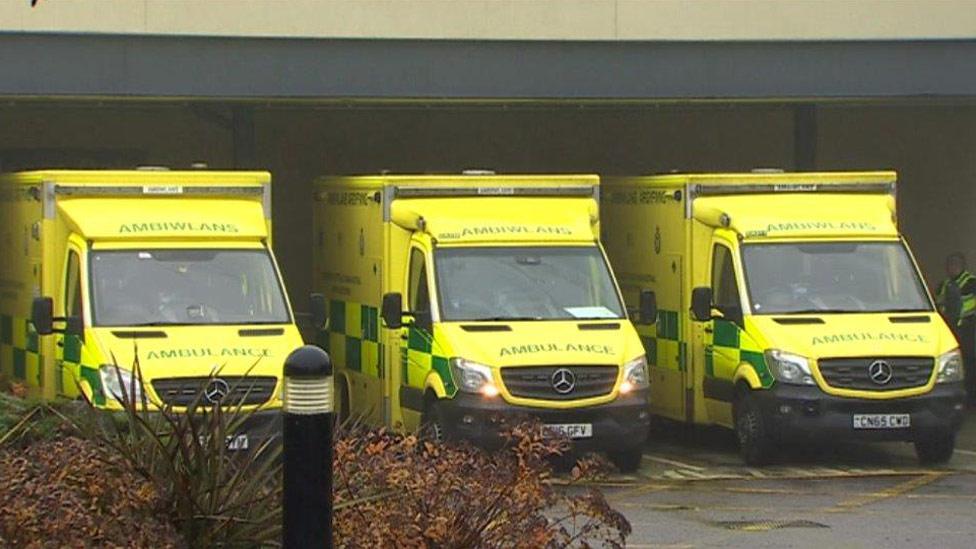
- Published18 May 2016
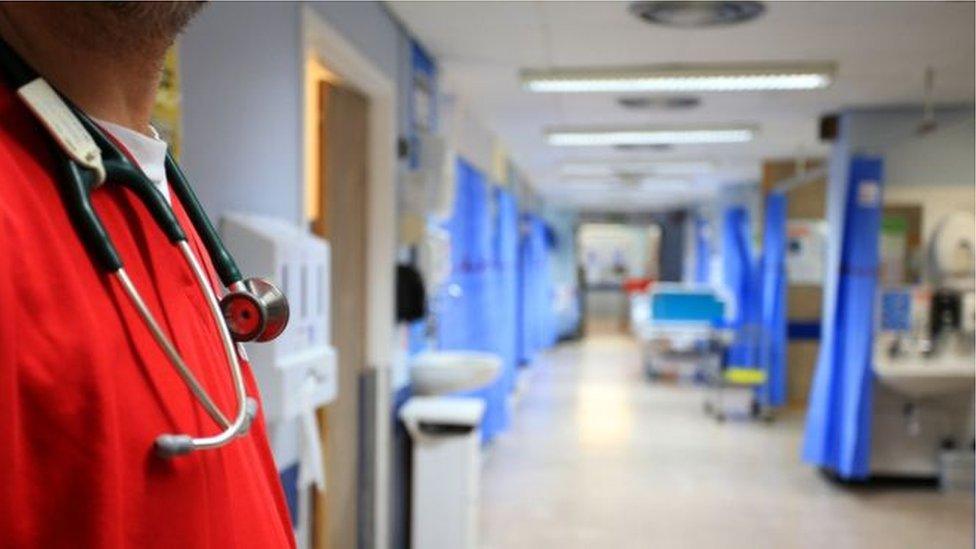
- Published21 June 2016
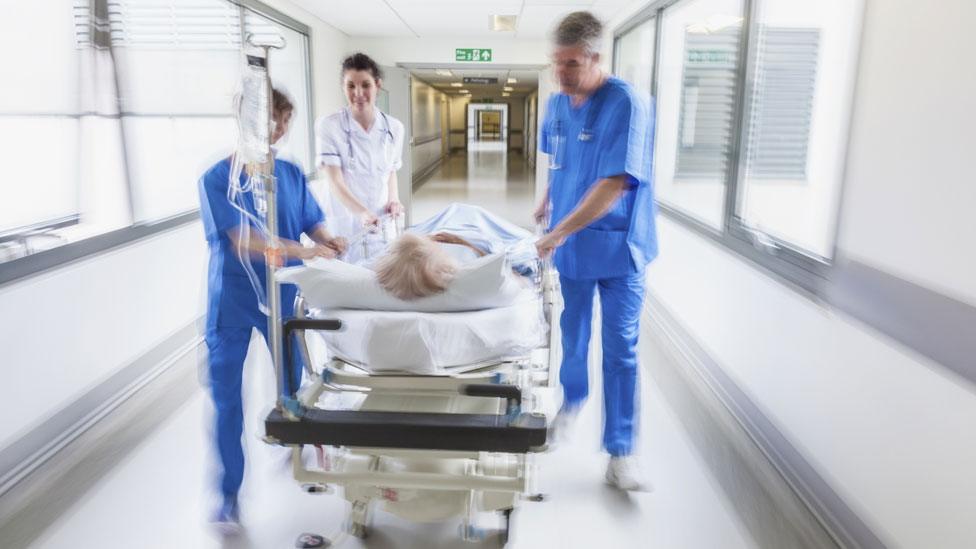
- Published28 January 2016
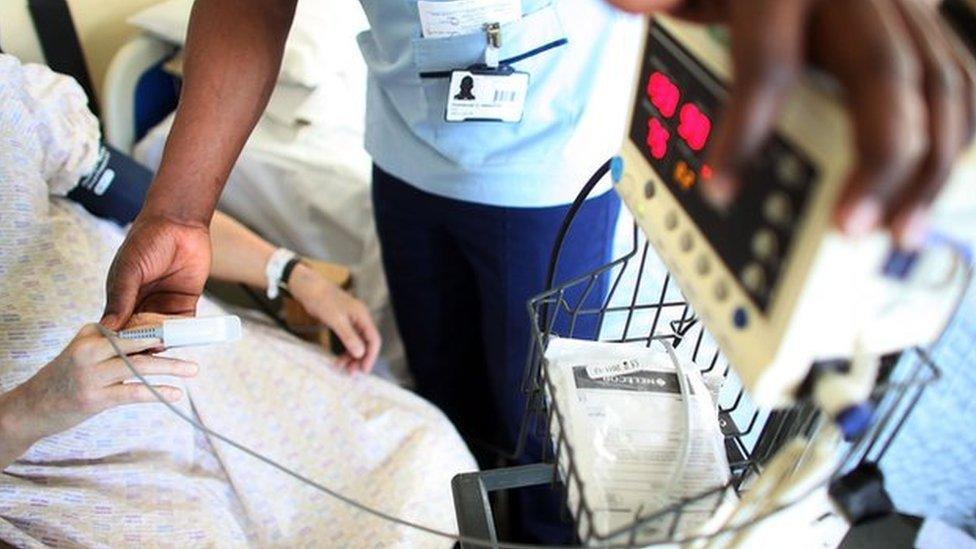
- Published18 February 2016
